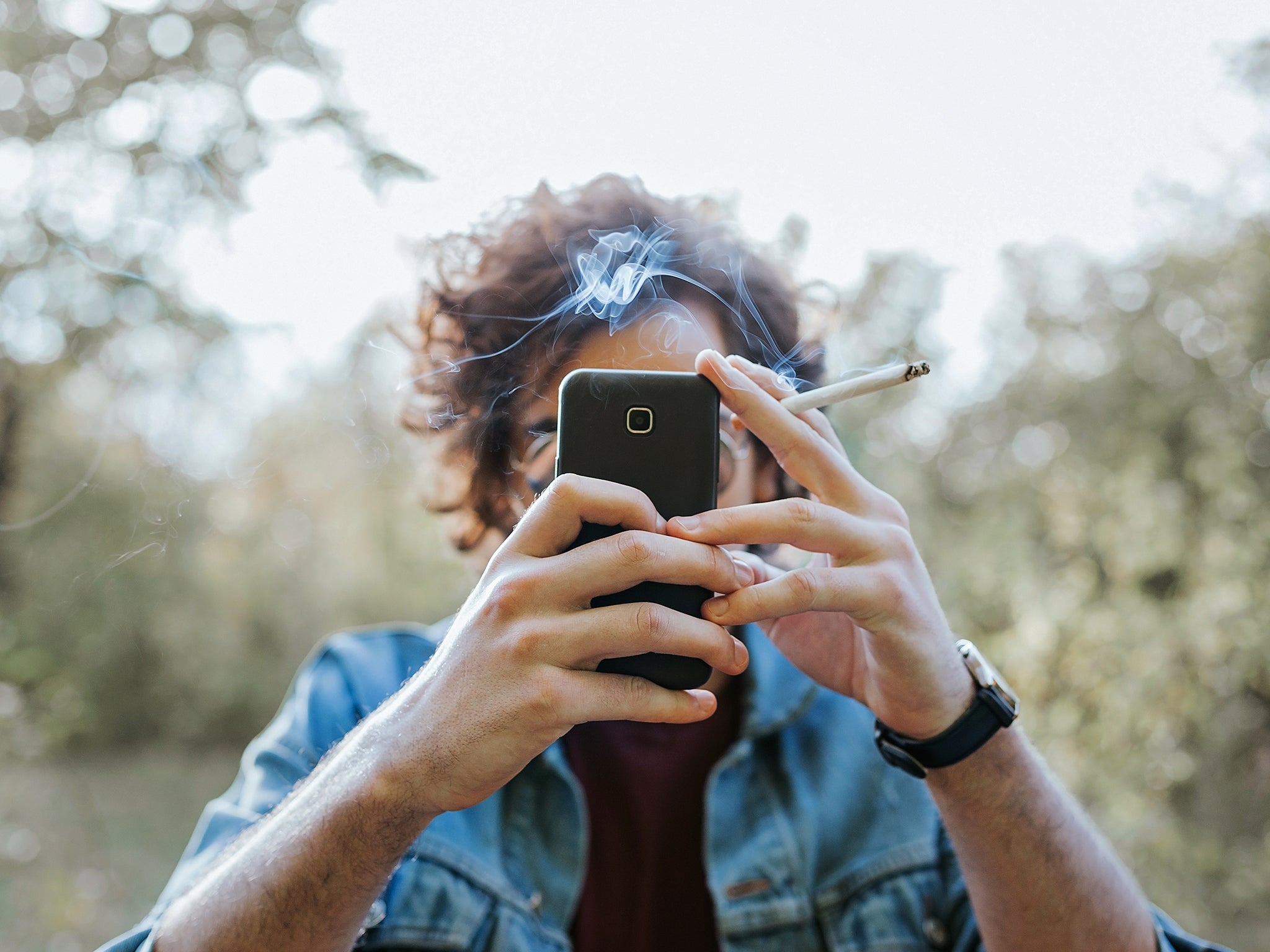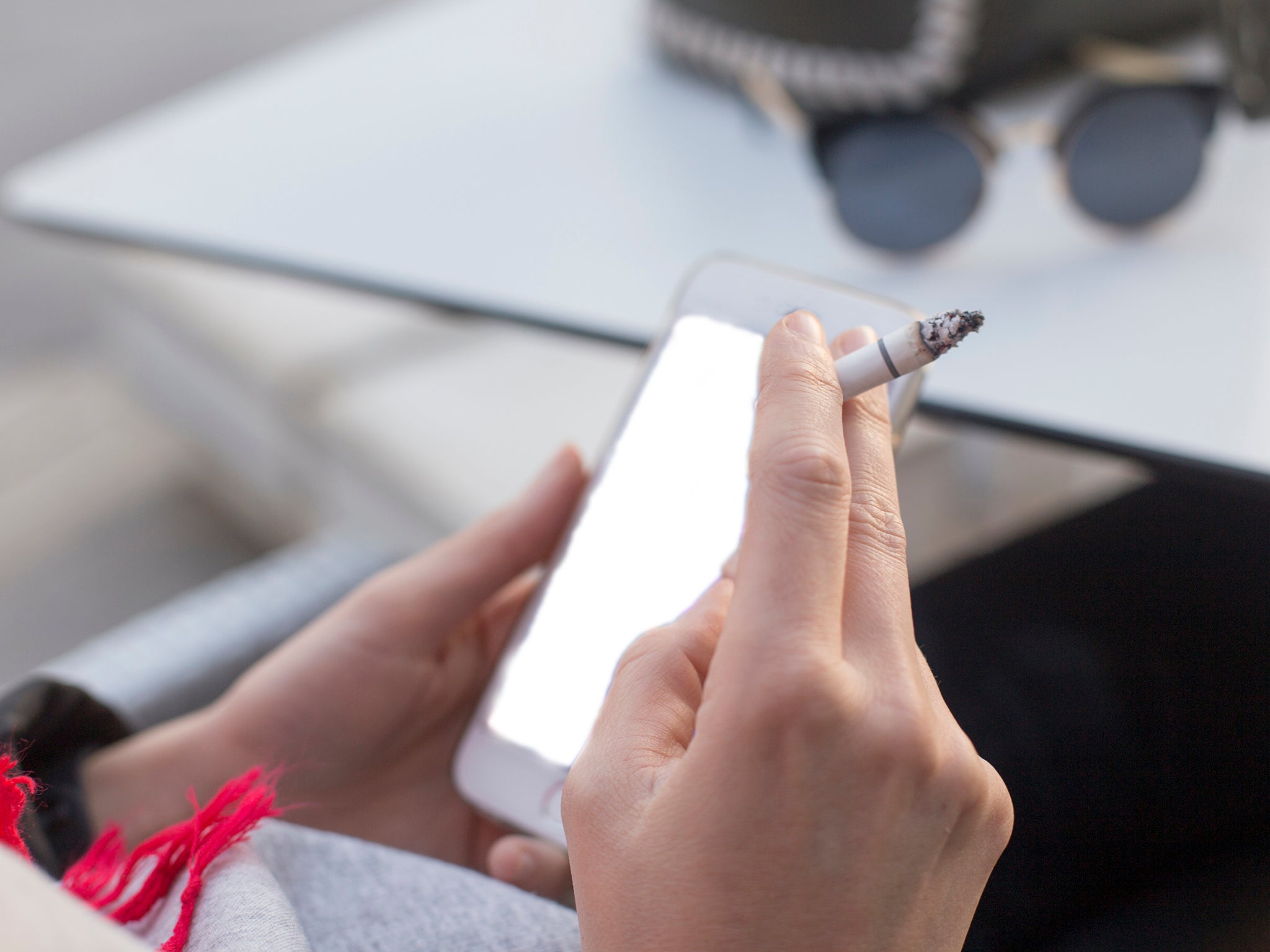Despite being banned, Big Tobacco is still on social media
Smoking giants are flouting rules set by Facebook and Instagram, says Andrew Rowell

Your support helps us to tell the story
From reproductive rights to climate change to Big Tech, The Independent is on the ground when the story is developing. Whether it's investigating the financials of Elon Musk's pro-Trump PAC or producing our latest documentary, 'The A Word', which shines a light on the American women fighting for reproductive rights, we know how important it is to parse out the facts from the messaging.
At such a critical moment in US history, we need reporters on the ground. Your donation allows us to keep sending journalists to speak to both sides of the story.
The Independent is trusted by Americans across the entire political spectrum. And unlike many other quality news outlets, we choose not to lock Americans out of our reporting and analysis with paywalls. We believe quality journalism should be available to everyone, paid for by those who can afford it.
Your support makes all the difference.Big Tobacco likes to stay ahead of the curve – to survive, it has to. Its fundamental problem is that one in two of its long-term users die from tobacco-related diseases. To hook a new generation into addiction, it has to try every advertising and marketing trick in its playbook.
And it has to be innovative. As one ex-marketing consultant remarked: “The problem, is how do you sell death?” He said the industry did it with great open spaces, such as mountains and lakes. They did it with healthy young people and iconic images. So the Marlboro Man became a symbol of masculinity and, for women, the industry promoted smoking as a “torch of freedom”.
For years, the industry fought regulators who slowly and belatedly restricted where and how it could advertise. Then came the internet, which was a dream come true for a tobacco marketeer. The industry could run riot in an unregulated haven. One commentator noted in Wired magazine in 2017 that the internet was a contemporary incarnation of the wild west.
The old rules no longer applied, and Big Tobacco began using internet platforms, including Facebook and Instagram, to bypass advertising bans. They began paying social media influencers to promote traditional tobacco products as well as e-cigarettes. And they were very successful at it.
In August 2018, the New York Times investigated Big Tobacco’s social media influence. The paper found 123 hashtags associated with companies’ tobacco products, which had been viewed a staggering 25 billion times. Robert Kozinets, a professor at the University of Southern California, told the newspaper that what the industry was doing was a “really effective way” to get around existing laws to restrict advertising to young people.

Cease and desist
The pressure on the industry to act increased in May 2019 when 125 public health organisations called on Facebook, Instagram, Twitter and Snapchat to immediately end the promotion of cigarettes and e-cigarettes. This included banning the use of social media influencers. The social media companies ignored the request.
In December 2019, in a landmark decision, the UK Advertising Standards Authority ruled against British American Tobacco and three other firms for promoting their products on Instagram, after a complaint by Action on Smoking and Health, Campaign for Tobacco-Free Kids and Stopping Tobacco Organisations and Products, of which the University of Bath's Tobacco Control Research Group is a partner.
In a follow-up statement, Facebook and Instagram announced what many saw as a long-overdue update to their policy on tobacco. It said that branded content that promotes goods such as vaping, tobacco products and weapons “will not be allowed”. The statement made the bold claim that their advertising policies had long “prohibited” the advertisement of these products. The platforms promised that enforcement would begin in the coming weeks.
Headlines touting the new policy made it clear that the platforms would ban influencers from promoting e-cigarettes and tobacco products. For example, a BBC headline announced: “Instagram e-cigarette posts banned by ad watchdog.” But they missed three crucial points. First, Facebook’s policies are designed for companies that play by the rules, not for tobacco companies whose playbook is to find ways around them or flout them.
Second, those who track the industry’s activities online say it is notoriously difficult to understand which posts come under Facebook's “branded content” bracket. On Instagram, Big Tobacco’s influencers post glamorised images of vape products with hashtags such as #idareyoutotryit and captions such as “feeling Vype AF”. They don’t post content that simply says “paid promotion of British American Tobacco”, for example.
Finally, serious doubts remain about how any of this will be enforced. The reality is that Big Tobacco needs Instagram to survive and can’t afford to be excluded. A market research company, Klear, recently noted that 96 per cent of all brands use influencers, with Instagram the most popular platform. Klear found that global Instagram influencer marketing activity increased by 48 per cent in 2019.
Caroline Renzulli of Campaign for Tobacco-Free Kids told me: “In the weeks since the announcement that influencers would be banned from promoting tobacco and e-cigarettes, tobacco companies have continued to exploit influencer marketing on Facebook and Instagram to advertise addictive products to young people without consequence.”
She added: “Facebook and Instagram are uniquely positioned to cut off Big Tobacco’s easiest access point to kids and young people around the world – but without swift enactment and strict enforcement of new policies, the announcement is yet another hollow statement from a company that no longer has any excuse for inaction on this issue.”
enior research fellow at the University of Bath. This article was originally published in The Conversation
Join our commenting forum
Join thought-provoking conversations, follow other Independent readers and see their replies
Comments